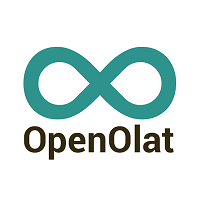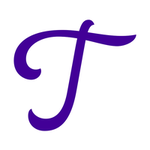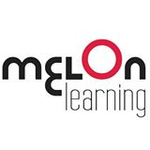Description

OpenOlat

Relias
Comprehensive Overview: OpenOlat vs Relias
OpenOlat and Relias are both prominent tools in the realm of digital education, but they cater to different niches and have distinct functionalities.
OpenOlat
a) Primary Functions and Target Markets:
-
Primary Functions: OpenOlat (Open Online Learning and Training) is an open-source learning management system (LMS) designed to support the complex needs of educational institutions and organizations with a focus on higher education and corporate training. Its key features include course management, content authoring, assessment tools, communication and collaboration features, learning path management, and integration capabilities with other systems.
-
Target Markets: OpenOlat primarily targets educational institutions such as universities and colleges, as well as corporate environments that need tailored training solutions. Its customizable nature allows it to be adapted to various educational formats and organizational learning processes.
b) Market Share and User Base:
- OpenOlat has a niche user base primarily in the educational sector, particularly in regions where open-source solutions are preferred due to customization capabilities and cost efficiencies. Its open-source nature limits its broader commercial market presence compared to proprietary systems, leading to a modest market share mainly within academic institutions that support open-source projects.
c) Key Differentiating Factors:
-
Open Source: One of the most significant differentiators is its open-source nature, which allows institutions to modify and customize the software to fit their specific needs without licensing fees.
-
Customization and Flexibility: OpenOlat offers extensive customization options and flexibility, which is particularly appealing to technical teams within institutions that can support open-source integration and development.
-
Focus on Structured Learning Paths: It strongly emphasizes structured learning paths, which are beneficial for organizations looking to implement detailed and sequential training programs.
Relias
a) Primary Functions and Target Markets:
-
Primary Functions: Relias is a comprehensive platform for online training and compliance management, best known for healthcare education. It provides e-learning solutions that include competency management, performance assessments, course authoring, analytics, and reporting tools, all focused on improving care outcomes and maintaining compliance with industry standards.
-
Target Markets: Relias is geared towards the healthcare industry, including hospitals, long-term care facilities, public safety organizations, and other healthcare-related organizations that require compliance-focused training.
b) Market Share and User Base:
- Relias has a significant presence in the healthcare e-learning sector. Given the industry's regulatory requirements for training and compliance, Relias plays a vital role in many healthcare organizations, providing training solutions to a vast number of users. As a result, it holds a robust market share within the healthcare training industry.
c) Key Differentiating Factors:
-
Industry-Specific Focus: Unlike OpenOlat, Relias is specifically tailored for the healthcare industry, offering specialized content and compliance tools that address the specific needs and regulatory requirements of healthcare professionals.
-
Proprietary Solution: Relias is a commercial product that offers comprehensive support and services, which can be a significant advantage for organizations that prefer vendor-backed solutions over community-supported open-source platforms.
-
Emphasis on Compliance and Accreditation: Its strong emphasis on regulatory compliance, continuing education, and maintaining certifications sets it apart as a highly specialized platform compared to generalized LMS solutions.
Summary
In summary, while both OpenOlat and Relias serve as e-learning platforms, they cater to different markets with distinct functional emphases. OpenOlat is ideal for institutions seeking a flexible and customizable LMS, whereas Relias excels in delivering compliance and competency-focused training in the healthcare sector. Their differences in target markets and core functionalities have a significant impact on their market presence and user base distribution.
Contact Info

Year founded :
Not Available
Not Available
Not Available
Switzerland
Not Available

Year founded :
2012
Not Available
Not Available
United States
Not Available
Feature Similarity Breakdown: OpenOlat, Relias
To provide a feature similarity breakdown for OpenOlat and Relias, we can look into their functionalities, user interfaces, and unique features.
a) Core Features in Common
-
Learning Management System (LMS):
- Both OpenOlat and Relias function as comprehensive LMS platforms, providing tools for e-learning and training management.
-
Course Management:
- Both platforms allow for the creation and management of courses, including uploading materials and structuring learning paths.
-
Assessments and Quizzes:
- Each platform provides functionalities for creating assessments and quizzes to evaluate learners' knowledge and track performance.
-
User Management:
- They include features for managing users, grouping them, and assigning roles and permissions.
-
Reporting and Analytics:
- Both systems offer reporting tools to track progress and performance, giving insights into learner engagement and outcomes.
-
Communication Tools:
- They both offer features like forums or messaging to facilitate communication between instructors and learners.
b) Comparison of User Interfaces
-
OpenOlat:
- OpenOlat provides a more open-source, flexible interface that is highly customizable. The UI is modular, offering a variety of widgets and tools that users can configure based on their needs.
- It might require a steeper learning curve for users unfamiliar with open-source platforms, given its wide range of customization options.
-
Relias:
- Relias has a more streamlined, user-friendly interface aimed at healthcare professionals, focused on ease of use and quick access to core features.
- Its interface tends to be intuitive with fewer customization options, favoring simplicity and standardization across healthcare organizations.
c) Unique Features
-
OpenOlat:
- Open-Source Flexibility: As an open-source platform, OpenOlat allows organizations to modify and extend the software to suit specific requirements.
- Community Features: Offers collaboration tools such as wikis and workshops that foster community-based learning.
- Support for Diverse Content Types: It provides support for a wide range of content types, including SCORM, IMS, and AICC standards.
-
Relias:
- Healthcare Industry Focus: Specifically designed for the healthcare industry, offering courses and training that comply with healthcare regulations and standards.
- Competency and Credentialing Solutions: Relias includes features tailored to competency management and credentialing, ensuring healthcare professionals maintain their certifications.
- Integration with Healthcare Systems: Offers integration capabilities with various healthcare systems and electronic medical records (EMR) for seamless data exchange.
In conclusion, while both OpenOlat and Relias share common LMS functionalities, their distinction lies in target audiences and specific industry features. OpenOlat's open-source nature provides greater flexibility and adaptability, whereas Relias focuses on providing solutions tailored to the healthcare sector, emphasizing ease of use and compliance with industry standards.
Features

Not Available

Not Available
Best Fit Use Cases: OpenOlat, Relias
OpenOlat and Relias are both online learning platforms, but they cater to different use cases and industries. Here's a breakdown of their best fit use cases based on business types, scenarios, industry verticals, and company sizes:
OpenOlat
a) Best Fit Use Cases:
- Educational Institutions: OpenOlat excels in academic settings, such as universities, colleges, and schools, where there is a need for a versatile and comprehensive Learning Management System (LMS). It is ideal for institutions that require a scalable and customizable platform to manage a large variety of courses, integrate interactive learning modules, and facilitate collaboration among students and educators.
- Corporate Training for Large Organizations: OpenOlat can also be beneficial for large corporations in need of a robust LMS to deliver ongoing training and development programs. Its flexibility allows it to be tailored to complex organizational structures and varied training requirements.
- Public Sector and Non-Profit Organizations: These entities often seek open-source solutions for budgeting reasons and to ensure data sovereignty. OpenOlat’s open-source nature makes it an attractive choice for organizations in this space.
d) Industry Verticals & Company Sizes:
- Industry Verticals: Education, government, corporate education, and non-profit sectors are primary targets.
- Company Sizes: Large and enterprise-level organizations benefit the most from OpenOlat due to its scalability and ability to manage extensive user bases.
Relias
b) Best Fit Use Cases:
- Healthcare: Relias is specifically tailored for the healthcare industry, making it a preferred choice for hospitals, nursing homes, and other healthcare facilities. It provides specialized training and compliance modules necessary for healthcare professionals.
- Mental Health and Human Services: Organizations in these fields benefit from Relias due to its focus on compliance, patient care standards, and ongoing staff development.
- Senior Care: Facilities providing elder care utilize Relias for specialized training programs that address the regulatory and skill-building needs of staff.
- Public Safety and Emergency Services: Relias offers training suited to ensuring that public safety personnel meet critical certification and skills development requirements.
d) Industry Verticals & Company Sizes:
- Industry Verticals: Primarily healthcare, including mental health, senior care, public safety, and rehabilitation facilities.
- Company Sizes: Although it can be used by organizations of varying sizes, small to medium-sized healthcare facilities find Relias particularly beneficial due to its focus on industry-specific needs and compliance training.
Summary
Both OpenOlat and Relias cater to specific niches and offer tailored solutions to their target audiences. OpenOlat’s strength lies in its adaptability and open-source flexibility, making it suitable for educational institutions and large organizations looking for comprehensive training solutions. In contrast, Relias is specialized for the healthcare industry, with a strong emphasis on compliance and professional development, making it the preferred choice in those environments. Each platform's capabilities and focus areas make them well-suited to the specific industries and organizational sizes they serve.
Pricing

Pricing Not Available

Pricing Not Available
Metrics History
Metrics History
Comparing undefined across companies
Conclusion & Final Verdict: OpenOlat vs Relias
To conclude and provide a final verdict on OpenOlat and Relias, we will analyze their overall value, weigh the pros and cons of each, and offer recommendations for users trying to choose between the two.
a) Overall Value
OpenOlat:
- Open source, which means lower upfront costs but requires more technical know-how.
- Highly customizable, catering to a variety of educational models.
- Offers extensive features like course authoring, assessments, and collaboration tools.
- Suitable for organizations looking for flexibility and control over their e-learning platform.
Relias:
- Proprietary product with a focus on healthcare and human services training.
- Streamlined, with specialized content targeted for compliance and skill development in healthcare.
- Offers robust reporting and analytics, along with a sizable library of accredited training materials.
- Suitable for organizations in healthcare that need specialized compliance training.
Best Overall Value: The best overall value depends largely on the specific needs of an organization. For those in healthcare seeking targeted compliance and skill training, Relias provides strong value with its specialized content and industry focus. For educational institutions or organizations desiring a highly flexible and customizable LMS that they can adapt for various purposes, OpenOlat offers great value with its open-source advantages.
b) Pros and Cons
OpenOlat Pros:
- Cost-effective due to its open-source nature.
- Flexibility in customization allows for tailoring to specific organizational needs.
- Community-driven development may lead to innovative features.
OpenOlat Cons:
- Requires technical expertise to manage and maintain.
- May require additional investment in support and customization.
- Not as focused or specialized in any particular industry, which might require more effort in curating content.
Relias Pros:
- Strong focus on healthcare and human services makes it ideal for those industries.
- Large library of accredited training materials reduces content creation overhead.
- Offers excellent support and ease of use for non-technical users.
Relias Cons:
- More costly due to its proprietary nature.
- Less flexibility in customization compared to open-source platforms.
- Primarily suitable for specific industries, may not be versatile for broader educational needs.
c) Specific Recommendations
For organizations, particularly in healthcare, looking for an efficient way to manage compliance and skills training, Relias is highly recommended due to its specialized focus and comprehensive content library. Its ease of use and strong support structure make it a solid choice for those with limited technical resources.
Conversely, educational institutions or organizations outside healthcare that need a versatile and customizable LMS should consider OpenOlat. It is ideal for users who have or can invest in technical resources to leverage its flexibility. For those aiming for broader education solutions across different topics and teaching styles, OpenOlat offers a more adaptable framework.
In summary, the choice between OpenOlat and Relias should heavily depend on the specific industry requirements, resource availability, and the level of customization needed.
Add to compare
Add similar companies



